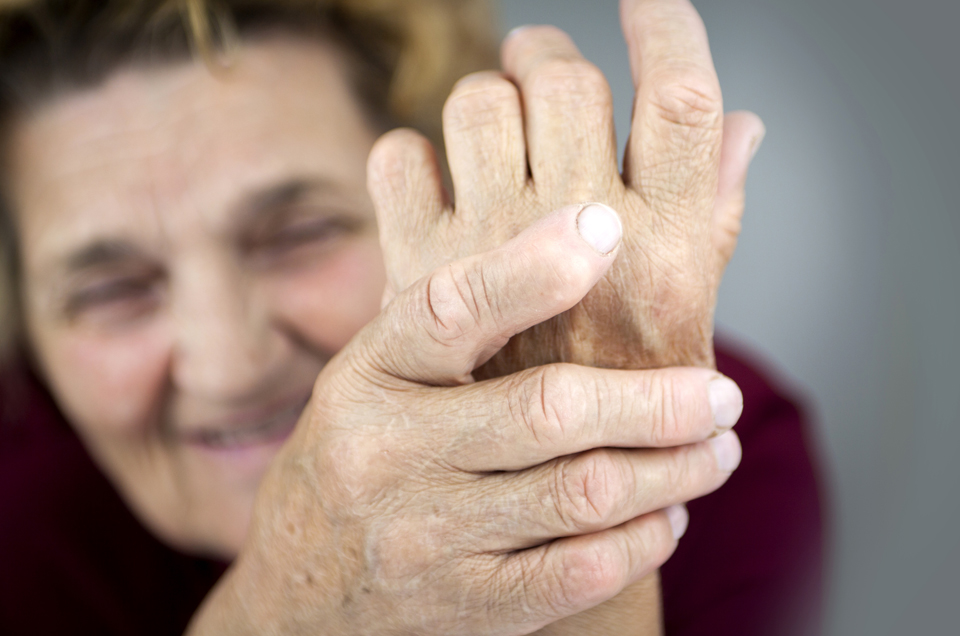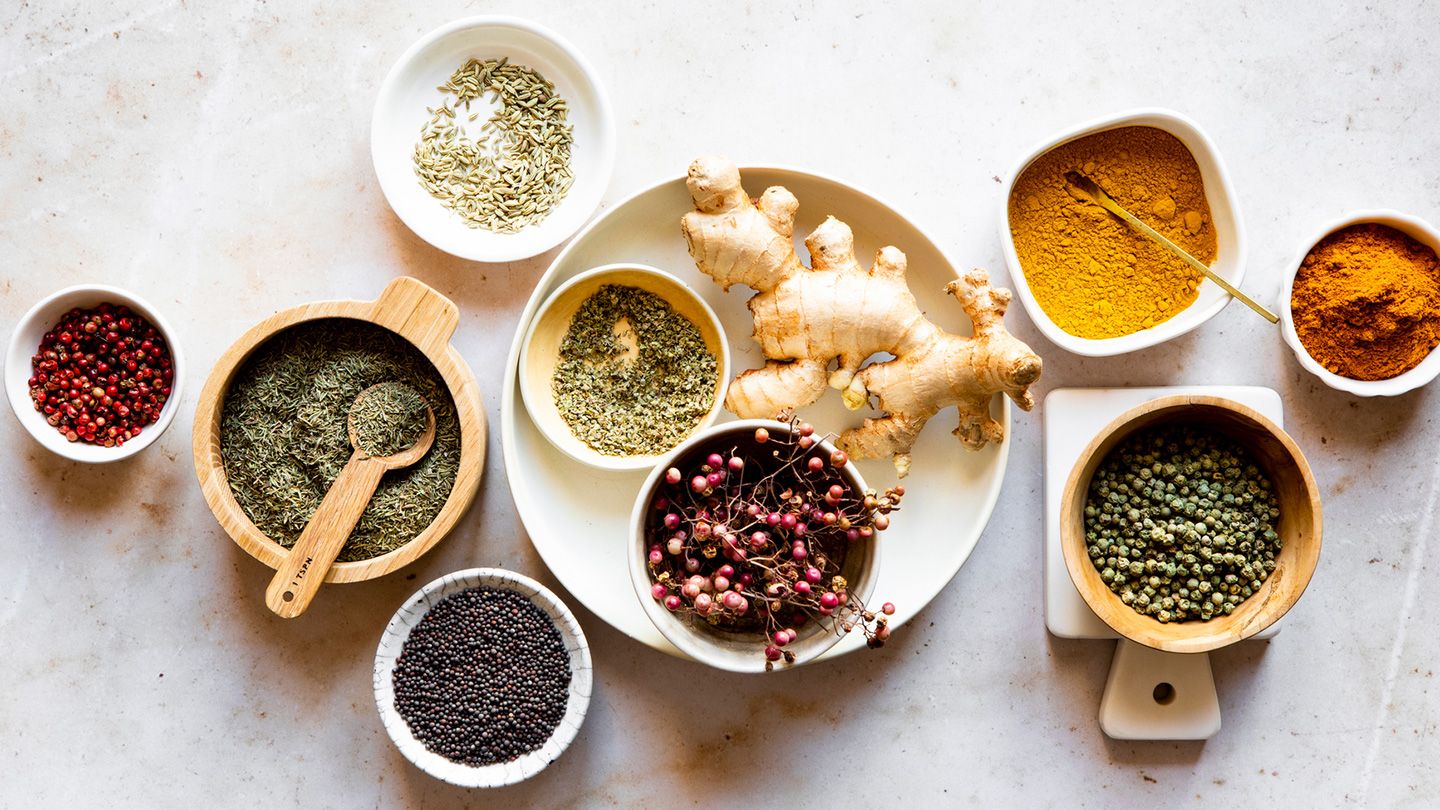Natural Remedies For Arthritis - Harnessing The Power Of Nature
By tapping into the power of natural solutions, individuals can find relief without solely relying on medications. Understanding these natural remedies for arthritis empowers people to take control of their health and enhance their overall well-being.
Author:Stefano MclaughlinReviewer:Dexter CookeFeb 16, 202483K Shares1.1M Views

Living with arthritis presents daily challenges, but nature offers a wealth of natural remedies to alleviate its symptoms. By tapping into the power of natural solutions, individuals can find relief without solely relying on medications. Understanding these natural remedies for arthritisempowers people to take control of their health and enhance their overall well-being.
What Is Arthritis?
Arthritis is a medical condition characterized by inflammation and stiffness in one or more joints, causing pain and restricted movement. There are many types of arthritis, including osteoarthritis, rheumatoid arthritis, and psoriatic arthritis, each with its own distinct causes and symptoms. It can affect people of all ages, but it is more commonly seen in older individuals.
Arthritis can have a significant impact on daily life, leading to difficulties in performing tasks and reducing overall quality of life. Treatment options vary depending on the type and severity of the condition, and may include medication, physical therapy, lifestyle changes, and in some cases, surgery.
Common Types Of Arthritis
- Osteoarthritis (OA)- This is the most common type of arthritis, characterized by the breakdown of cartilage in the joints. It typically affects older adults and commonly affects weight-bearing joints such as the knees, hips, and spine. Symptoms include joint pain, stiffness, and decreased range of motion.
- Rheumatoid arthritis (RA)- RA is an autoimmune disorder in which the immune system attacks the lining of the joints, causing inflammation, pain, and eventually joint damage. It can affect any joint in the body and often presents with symmetrical joint involvement. Other symptoms may include fatigue, fever, and swollen joints.
- Psoriatic arthritis (PsA)- PsA is a type of arthritis that occurs in some people with the skin condition psoriasis. It can affect any joint in the body and may cause swelling, pain, and stiffness. PsA can also cause inflammation in the eyes, skin, and nails.
- Ankylosing spondylitis (AS)- AS primarily affects the spine, causing inflammation of the vertebrae and ligaments. It can lead to stiffness and fusion of the spine, resulting in a hunched posture. AS can also affect other joints, such as the hips and shoulders, and may cause fatigue and eye inflammation.
- Gout- Gout is a form of arthritis characterized by sudden and severe attacks of joint pain, swelling, and redness, usually in the big toe. It occurs when uric acid crystals accumulate in the joints, leading to inflammation. Gout attacks can be triggered by certain foods, alcohol, and medications.
- Lupus (systemic lupus erythematosus)- Lupus is an autoimmune disease that can affect various organs and tissues, including the joints. Joint pain, stiffness, and swelling are common symptoms of lupus arthritis. Other symptoms may include skin rashes, fatigue, and organ inflammation.
- Juvenile arthritis (JA)- JA refers to several types of arthritis that occur in children under the age of 16. The most common form is juvenile idiopathic arthritis (JIA), which causes joint pain, swelling, and stiffness. JA can affect one or multiple joints and may cause growth problems in affected children.
- Reactive arthritis- Reactive arthritis is a type of arthritis that develops in response to an infection in another part of the body, typically the gastrointestinal or genitourinary tract. It often affects the joints, eyes, and urethra and may cause symptoms such as joint pain, eye inflammation, and urinary symptoms.
- Infectious arthritis- Also known as septic arthritis, infectious arthritis occurs when bacteria, viruses, or fungi infect a joint, leading to inflammation and joint damage. It can cause severe pain, swelling, and fever and requires prompt medical treatment to prevent complications.
- Fibromyalgia- While not strictly classified as arthritis, fibromyalgia is a chronic pain condition that often coexists with arthritis. It is characterized by widespread musculoskeletal pain, fatigue, sleep disturbances, and tender points throughout the body. Fibromyalgia can exacerbate arthritis symptoms and complicate treatment.
Causes And Risk Factors
- Genetics- Family history plays a significant role in the development of arthritis. Certain genes can predispose individuals to various types of arthritis, such as rheumatoid arthritis and ankylosing spondylitis.
- Age- The risk of arthritis increases with age, as wear and tear on the joints over time can lead to conditions like osteoarthritis. However, arthritis can also affect people of all ages, including children (juvenile arthritis).
- Gender- Some types of arthritis are more common in specific genders. For example, rheumatoid arthritis is more prevalent in women, while gout is more common in men.
- Obesity- Excess weight places added stress on the joints, particularly weight-bearing joints like the knees and hips. This increases the risk of developing osteoarthritis and exacerbates symptoms in other types of arthritis.
- Joint injuries- Previous joint injuries, such as fractures or ligament tears, can increase the risk of developing arthritis later in life. Joint trauma can disrupt the normal structure and function of the joint, leading to accelerated joint degeneration.
- Infections- Certain infections can trigger reactive arthritis, a type of arthritis that develops in response to an infection in another part of the body. Common infections associated with reactive arthritis include gastrointestinal infections (e.g., from Salmonella or Campylobacter bacteria) and sexually transmitted infections (e.g., Chlamydia).
- Autoimmune disorders- Autoimmune diseases, such as rheumatoid arthritis and lupus, occur when the immune system mistakenly attacks the body's tissues. These conditions can lead to chronic inflammation in the joints, causing pain, swelling, and damage.
- Occupation- Jobs that involve repetitive joint movements, heavy lifting, or prolonged periods of standing or kneeling can increase the risk of developing arthritis. These activities can contribute to joint wear and tear over time.
- Smoking- Smoking has been linked to an increased risk of developing rheumatoid arthritis and may also worsen symptoms in individuals with existing arthritis. The exact mechanisms by which smoking influences arthritis risk are not fully understood but may involve inflammation and immune system dysfunction.
- Environmental factors- Exposure to certain environmental factors, such as air pollution or occupational hazards (e.g., asbestos), may contribute to the development or exacerbation of arthritis. Additionally, living in cold, damp climates has been associated with an increased risk of arthritis symptoms.
Natural Remedies Of Arthritis
While conventional treatments like medications and physical therapy are commonly used, many people also seek relief through natural remedies. Here are some natural approaches that may help alleviate arthritis symptoms:
- Turmeric -Curcumin, the active compound in turmeric, has potent anti-inflammatory properties that may help reduce joint inflammation and alleviate pain associated with arthritis. Adding turmeric to your diet or taking supplements can be beneficial.
- Fish oil -Rich in omega-3 fatty acids, fish oil has been shown to reduce inflammation and stiffness in arthritis patients. Consuming fatty fish like salmon, mackerel, or taking fish oil supplements can provide relief.
- Ginger -Ginger contains gingerol, a compound with anti-inflammatory and analgesic properties. Consuming ginger tea or adding fresh ginger to meals may help reduce arthritis-related pain and inflammation.
- Capsaicin -Found in chili peppers, capsaicin has been used topically to relieve arthritis pain. It works by reducing substance P, a neurotransmitter that transmits pain signals. Applying capsaicin cream to the affected joints may provide temporary relief.
- Massage -Massage therapy can help improve blood circulation, reduce muscle tension, and alleviate pain in arthritic joints. Gentle massaging of the affected area with warm oil or using a handheld massager may provide relief.
- Acupuncture -Acupuncture involves inserting thin needles into specific points on the body to stimulate nerves and release endorphins, which are natural pain-relieving chemicals. Some people find acupuncture helpful in reducing arthritis pain and improving joint function.
- Heat and cold therapy -Applying heat packs or taking warm baths can help relax muscles and alleviate stiffness in arthritic joints. Conversely, cold packs can numb the area and reduce inflammation, providing temporary relief from pain.
- Maintaining a healthy weight -Excess weight puts added stress on the joints, exacerbating arthritis symptoms. By maintaining a healthy weight through diet and exercise, you can reduce strain on your joints and alleviate pain.
- Regular exercise -Low-impact exercises like swimming, walking, or yoga can help improve joint flexibility, strengthen muscles, and reduce arthritis pain. It's essential to engage in regular physical activity while being mindful not to overexert yourself or aggravate the joints.
- Dietary changes -Adopting an anti-inflammatory diet rich in fruits, vegetables, whole grains, and healthy fats can help reduce inflammation and alleviate arthritis symptoms. Avoiding processed foods, sugary beverages, and excessive alcohol consumption may also be beneficial.
While these natural remedies may provide relief for some individuals with arthritis, it's essential to consult with a healthcare professional before starting any new treatment regimen, especially if you have pre-existing medical conditions or are taking medications.
Natural Remedies For Arthritis - FAQ
What Makes Arthritis Pain Go Away?
Use of heat, such as applying heating pads to aching joints, taking hot baths or showers, or immersing painful joints in warm paraffin wax, can help relieve pain temporarily. Be careful not to burn yourself. Use heating pads for no more than 20 minutes at a time.
Which Plant Is Used For Curing Arthritis?
Boswellia is a traditional natural remedy that has been used for thousands of years to treat swelling and inflamation in Ayurvedic medicine and traditional Chinese medicine. In 2003, medical researchers conducted a randomized blind placebo controlled trial of BS on 30 patients suffering from osteoarthritis of the knee.
Is Moringa Good For Arthritis?
Its antifungal, antiviral, and antibacterial qualities provide many health advantages. Additionally, moringa has strong anti-inflammatory properties, which may effectively help treat arthritis symptoms. Moringa for arthritis can help combat inflammation, largely due to the presence of its isothiocyanates.
Final Words
Natural remedies for arthritis hold immense promise for people seeking relief from arthritis symptoms. By embracing these alternatives, individuals can complement traditional treatments and enhance their overall quality of life.
Whether through herbal supplements, dietary modifications, or lifestyle adjustments, nature provides a diverse range of solutions to manage arthritis discomfort. Empowered with knowledge and a holistic approach to wellness, individuals can take proactive steps towards alleviating their arthritis symptoms naturally.

Stefano Mclaughlin
Author
Stefano Mclaughlin is a Psychologist focused on mental health, emotional well-being, and healthcare policy. He studied Psychology and Public Health at the University of Massachusetts Amherst, gaining a deep understanding of the intersection between mental health and public policy.
Stefano's mission is clear: he aims to destigmatize mental health discussions, improve access to mental healthcare, and promote emotional well-being for all. Drawing from personal experiences with anxiety and depression, Stefano shares real stories to make mental health topics more relatable and less intimidating.
In addition to his advocacy work, Stefano enjoys delving into books, experimenting in the kitchen, and embarking on new adventures. These hobbies fuel his creativity and inspire fresh perspectives for his advocacy work.

Dexter Cooke
Reviewer
Dexter Cooke is an economist, marketing strategist, and orthopedic surgeon with over 20 years of experience crafting compelling narratives that resonate worldwide.
He holds a Journalism degree from Columbia University, an Economics background from Yale University, and a medical degree with a postdoctoral fellowship in orthopedic medicine from the Medical University of South Carolina.
Dexter’s insights into media, economics, and marketing shine through his prolific contributions to respected publications and advisory roles for influential organizations.
As an orthopedic surgeon specializing in minimally invasive knee replacement surgery and laparoscopic procedures, Dexter prioritizes patient care above all.
Outside his professional pursuits, Dexter enjoys collecting vintage watches, studying ancient civilizations, learning about astronomy, and participating in charity runs.
Latest Articles
Popular Articles

